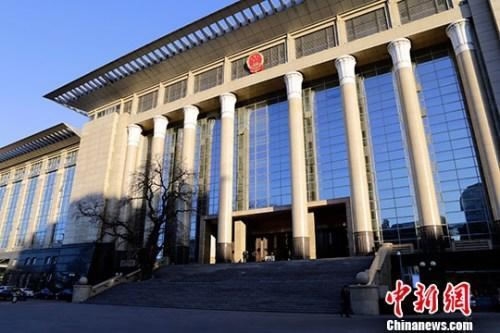
Business
13:15, 29-Aug-2017
China issues new interpretation of Company Law to better protect shareholders' rights
CGTN

China's Supreme People's Court on Monday issued the fourth judicial interpretation of the Company Law, providing much-needed clarification on five subject areas in a bid to shore up shareholders' rights.
The five areas - validity of board and shareholders’
resolutions, shareholders’ inspection rights, profits
distribution, pre-emptive rights in equity transfer
and derivative litigation - are often the subject of disputes in China, since the Company Law was
revised in 2014.

China's Supreme People's Court /Chinanews.com Photo
China's Supreme People's Court /Chinanews.com Photo
The interpretation supplements Article 22 of the Company Law which provides general rules on the validity of shareholders' resolution or a board resolution from a number of aspects, including, among others:
In addition to shareholders, directors and supervisors who are eligible to file a lawsuit to nullify a resolution, the interpretation enables senior management, employees or creditors that have any direct interest in such resolution to seek a court order to nullify a resolution under Article 22 of the Company Law.
The interpretation expands the scope of
accounting records that a shareholder may access to cover vouchers and source documents.
This will greatly facilitate shareholders (especially minority shareholders who do not participate in the operation of the company) in verifying the accuracy and authenticity of the accounting records.
According to the interpretation, the court may
uphold a plaintiff’s request to distribute profit if:
There is a validly passed resolution on the profit distribution; or
There is no valid resolution on such distribution but the plaintiff can prove that the lack of such resolution is due to the abuse of power by other shareholders or fraud by the senior management.
Moreover, a court’s decision to support distribution of profit is enforceable by shareholders who have not participated in the relevant lawsuit.
This means these shareholders do not need to lodge a separate claim, thus largely saving parties’ costs and enhancing judicial efficiency.
The interpretation, which comes into force on September 1, can help coordinate relations between shareholders and companies, create a sound business environment and support mass entrepreneurship and innovation.

SITEMAP
Copyright © 2018 CGTN. Beijing ICP prepared NO.16065310-3
Copyright © 2018 CGTN. Beijing ICP prepared NO.16065310-3